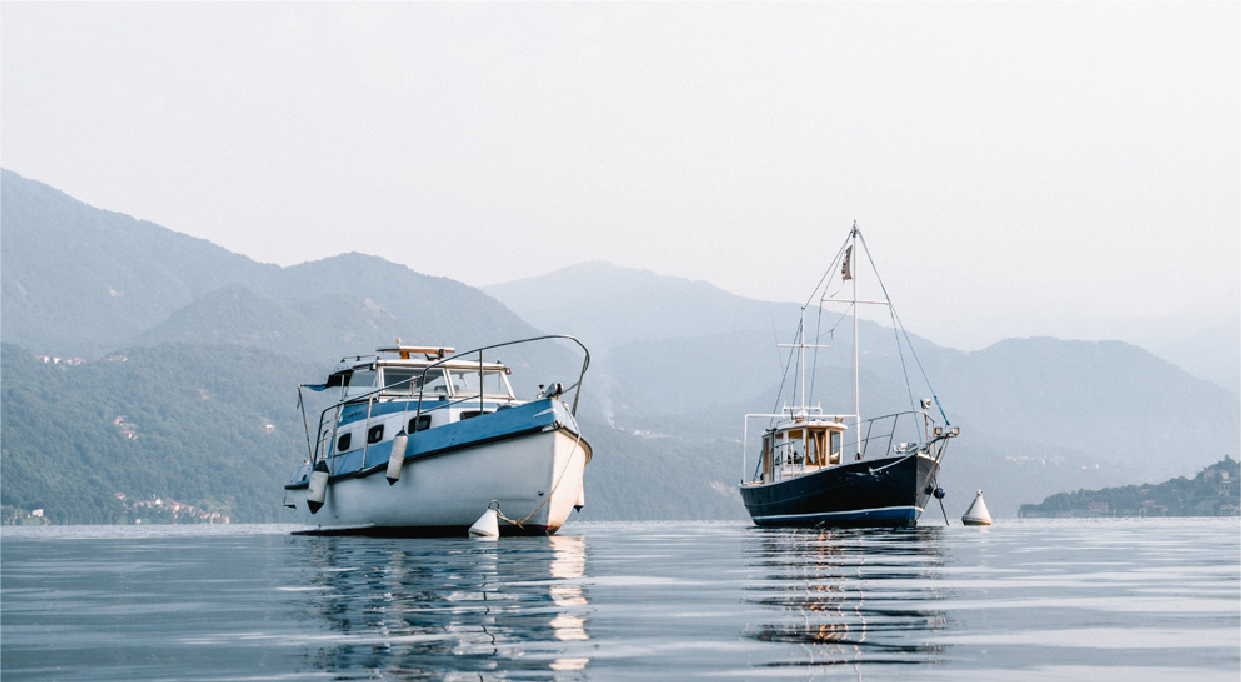 MANAGEMENT TOOL
MANAGEMENT TOOL
Recommendations for blue growth and marine conservation
TO WHOM IS ADDRESSED?
Business sector, Marine Protected Area (MPA) managers, public authorities, public authorities (MSP)THEME
Blue EconomyKEYWORDS
Blue economy, Maritime Spatial Planning, MPA, recommendations

WHAT PROBLEM WOULD THIS SOLVE?
With the development of the Blue Economy, several maritime sectors are increasingly likely to operate more frequently both inside and in the vicinity of Mediterranean MPAs, resulting in increased environmental impacts. MPA managers tend to address interactions between maritime sectors and protected areas in an isolated manner, and management effectiveness and MPA networking are in their infancy regarding this issue. As part of the PHAROS4MPAs project, a set of recommendations is developed to improve the coordination between MPAs (and their conservation goals) and maritime economic sectors.

WHAT IS NEEDED FOR IMPLEMENTATION?
Technological infrastructure
No particular technological infrastructure is needed.
Training
No particular training is needed.
Investment
No particular investment is needed to implement these recommendations.

HOW TO USE IT?
Concept
The recommendations focus on the necessary practical collaboration between MPAs and several maritime sectors: offshore wind energy, maritime traffic and ports, cruise, leisure boating, recreational fisheries, aquaculture and small-scale fisheries. The aim is to achieve enhanced management effectiveness for marine protected areas by raising awareness, building capacity, and networking. This will be supported by the inclusion of MPA networks issues in the national maritime spatial plans that EU Mediterranean States are developing by 2021 and in the strategies developed for maritime sectors.
Recommended implementation frequency
These recommendations should be implemented whenever there are potential interactions between MPA management goals and maritime economic sectors, and in relation to the development of national MSP plans.

WHAT CHALLENGES MAY ARISE?
For public authorities: the low level of influence of Maritime Spatial Planning (MSP) authorities in some countries may Recommendations for blue growth and marine conservation Management tool Photo by: Matt Hardy from Pixabay PHAROS4MPAS This tool is part of a Mediterranean Toolkit for Biodiversity Protection developed by the PANACeA partnership: require reaching out to higher authorities (e.g., Ministries). Moreover, the influence of industrial lobbies may be an obstacle. Finally, political will is necessary to strike a balance between the various uses of the sea.
For the business sector: the lack of interest from sectors that use the sea as an infrastructure (e.g., for commercial maritime transport), and the varying interest from sectors that rely on ecosystem services (e.g., fisheries). If the recommendations are too negative for a sector, there is a risk that they will reject them.

WHAT ARE THE EXPECTED RESULTS?
Quantitative results
The outcomes of the PHAROS4MPAs project include delivering common capitalisation baselines, recommendations, and policy tools adapted for the MedPAN network, MSP authorities, the European Commission, the Barcelona Convention, and the various maritime sectors. The success of the recommendations will partly depend on the capitalisation phase, meeting with relevant stakeholders and attending regional and national meetings to make sure all key target groups have been reached and understand the value of the recommendations and their benefits. Persuasion and efforts will be needed to have the project recommendations included in MPA management plans, country planning processes, or business strategies.
Transfer potential
The recommendations may be applied by any Mediterranean MPA.
KEY INFORMATIONS
countries
partners
maritime sectors
- The recommendations have been developed in the context of the PHAROS4MPAs project, which involved more than 15 partners from 10 countries: Tunisia, Malta, Spain, France, Belgium, Italy, Slovenia, Croatia, Albania and Greece.
- The recommendations involve 8 maritime sectors: offshore wind farms (energy); maritime traffic and ports, and cruises and super yachts (transport); scuba diving, leisure boating, and recreational fisheries (tourism); aquaculture, and small-scale fisheries (fisheries).
For further information
Project contact: PHAROS4MPAs
- Lead partner: WWF-FRANCE (Catherine Piante)
Links of interest:
- Pharos4MPAs website
- Biodiversity Protection Knowledge Platform – Pharos4MPAs project viewer
- Recommendations and policy briefs
- Decision Support Tool for Blue Economy in Marine Protected Areas (DST-MPA)
Partners
- AKZM
- Agence Française pour la Biodiversité
- CNR
- CPMR, France
- European Boating Industry
- France Energie Eolienne
- Girona University
- Institute of the Republic of Slovenia for Nature Conservation – ZRSVN
- Mediterranean Protected Areas Network – MedPAN
- Priority Actions Programme/Regional Activity Centre (PAP/RAC)
- REMPEC
- Regional Activity Centre for Specially Protected Areas – RAC/SPA
- Regional Development Funds for North Aegean Region
- WWF France
- WWF Greece
- WWF Mediterranean
- WWF Spain






